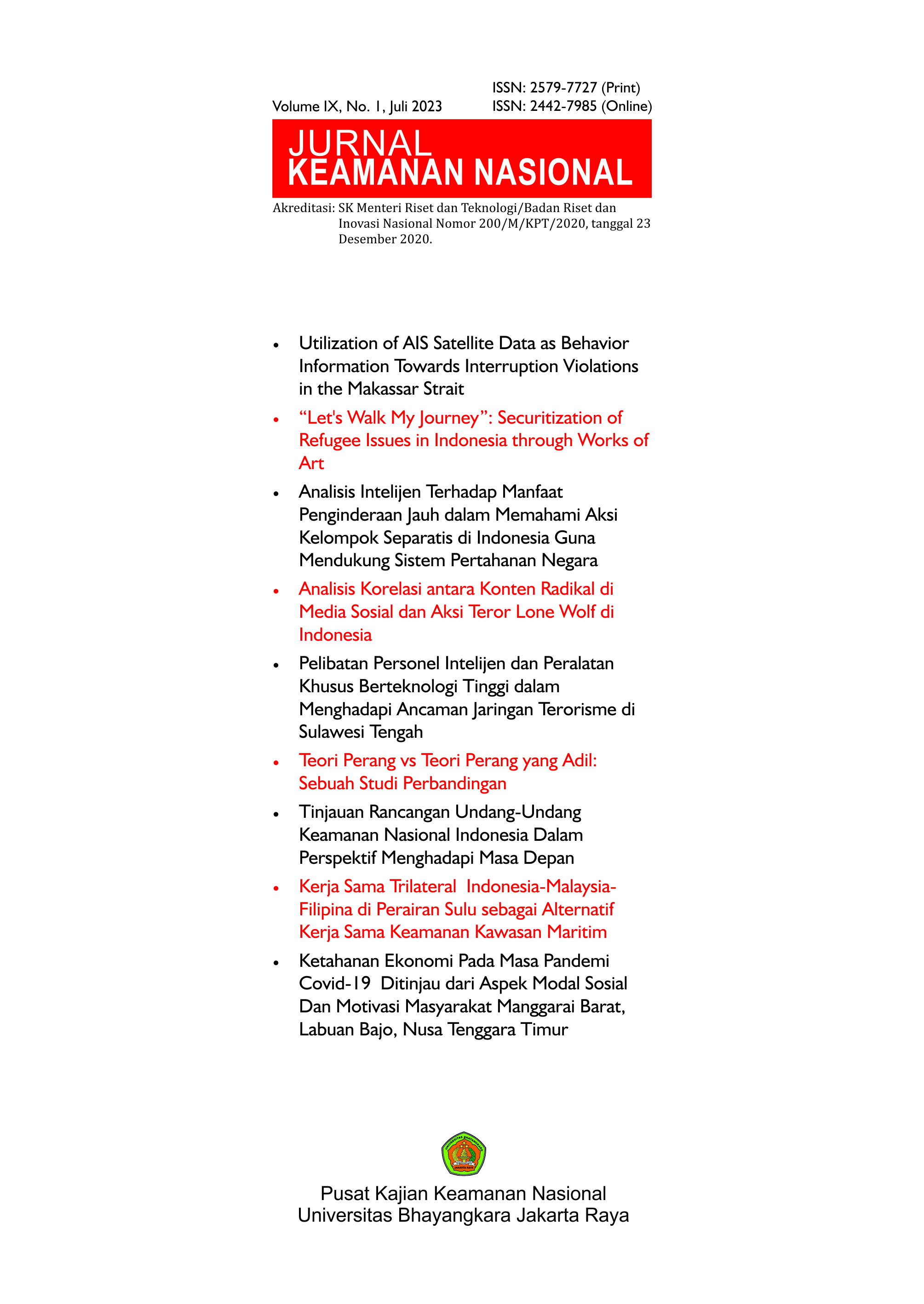Analisis Intelijen Terhadap Manfaat Penginderaan Jauh dalam Memahami Aksi Kelompok Separatis di Indonesia Guna Mendukung Sistem Pertahanan Negara
Keywords:
Remote Sensing; Intelligence Analysis; Separatist; National DefenseAbstract
Separatist groups in the Papua and West Papua Provinces are still carrying out their actions, ranging from gunfights with security forces to attacks on civilians. The security forces find it difficult to deal with the separatist group’s actions because of differences in their ability to control the terrain or territory, in this case the separatist group has more control over the field than the security forces. This study will answer these problems by providing alternative solutions in the form of using remote sensing from an intelligence perspective. This study uses a qualitative descriptive approach using data in the form of aerial photos and the results of processing the Google Earth application. The results of intelligence analysis on the benefits of remote sensing to understand the actions of separatist groups in the Papua and West Papua regions show that it is important to use remote sensing to understand phenomena or events that occur in Papua and West Papua, especially in mountainous areas. The use of remote sensing is part of early efforts to support the national defense system.
Downloads

Downloads
Published
Issue
Section
License
Please read and understand the copyright terms for submissions to this journal.
Copyright Notice
The Jurnal Keamanan Nasional is under the Creative Commons Attribution 4.0 International (CC-BY 4.0) License, according to which:
1) Authors retain copyright and grant the journal the right to first publication, with the work simultaneously licensed under the Creative Commons Attribution (CC-BY 4.0) that allows the sharing of articles published with the acknowledgement of authorship and the initial publication in this journal.
2) The authors are authorized to make additional contracts separately for distribution of the version of the work published in this journal (for example, publication in an institutional repository or as a chapter of the book), as long as there is recognition of authorship and initial publication in this journal.
3) Authors are authorized and encouraged to publish and distribute their work online (for example, in institutional repositories or on their personal pages) at any time before or during the editorial process, as it increases the impact and reference of the published work.












